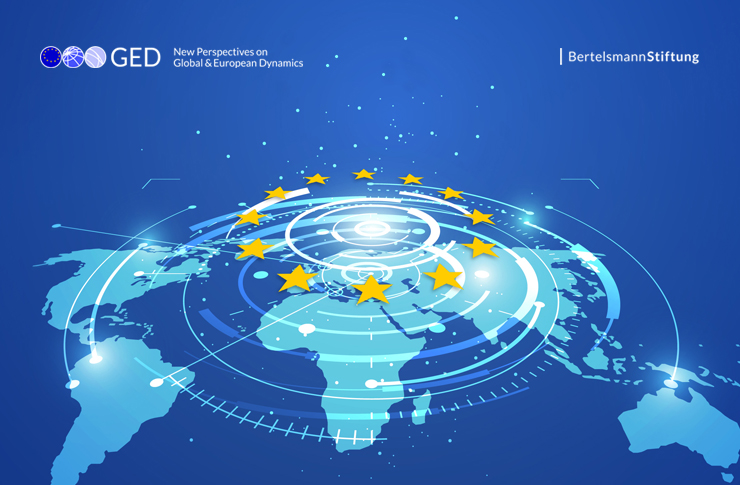
|
September 2022
Dear Readers,
We return after the summer break to digest the results of the Italian elections – of which more in the next edition of GED Monthly.
In the meantime, our experts offer assessments of developments in Taiwan as well as a deeper look at the broader state of EU-China relations.
We also analyse the UK’s efforts to tackle its regional inequalities under new Prime Minister Liz Truss while our guest writers, academics Martin Braml and Gabriel Felbermayr, assess Germany’s trade policy in the context of meeting its climate change obligations. Further articles focus on EU-Tunisian relations and on the EU’s broader relations with the Southern Mediterranean.
We would also like to draw your attention to two upcoming events on the topic of Economic Cohesion in Europe. We will be presenting the results of a study on the readiness of EU regions to deal with the twin transition on October 13 as part of the European Week of Regions in Brussels. Before this, we will be discussing the prospects of (Green) Growth for Good with the Commission’s Alessio Terzi and Jonathan Barth of the Institute for Future-fit Economics on September 26. You can sign up to these events towards the end of this newsletter.
With warm wishes,
Stephan Vopel and Malte Zabel
Director and Co-Director
Europe’s Future Program
|
|
|
|
|

Taiwan I: Will the EU get its Chips Together?
Following Nancy Pelosi’s visit to Taiwan, international headlines focused on the US House Speaker’s talks with President Tsai Ing-wen, as well as China’s subsequent military drills. Though widely unnoticed, she also held talks with Mark Liu, chairman of the world’s largest contract semiconductor manufacturer. In a similar vein, the EU has put chip production on the top of its plan to obtain “technological sovereignty” or at least to reclaim some of the semiconductor capabilities it has lost. Why have EU companies failed to compete? Where are the deficiencies that ought to be addressed? And how should we evaluate Brussels’ response to these issues?
Read more
|
|
|
|
|
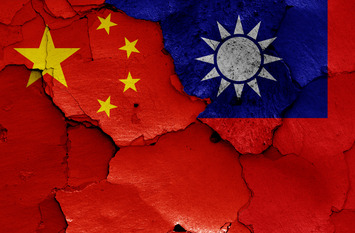
Taiwan II: A Slap in the Face for Globalization
Nancy Pelosi’s visit to Taiwan triggered a new Taiwan Strait crisis. Political and economic consequences will be severe and will deal yet another blow to globalization – which has already hugely suffered in recent years through the US-China trade war, the global pandemic, and, more recently, Russia’s war against Ukraine.
Read more
|
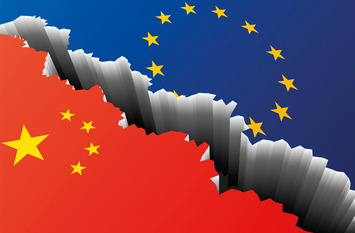
EU-China: Divergence, Distancing, Decoupling
The relationship between the EU and China is at a historical low point. We explain how this happened, what Covid, Lithuania and Putin have to do with it, and why, for the time being, the EU-China honeymoon is over, while rifts and tensions are here to stay and EU-China relations look set to be defined by further systemic rivalry.
Read more
|
|
|
|
|
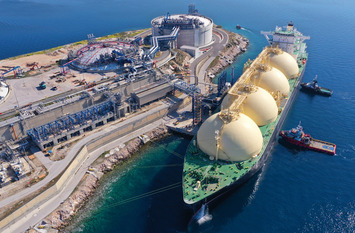
Germany’s Trade Policy: CO2 & Security
Germany, Europe’s largest economy, is by law required to aim at stability in foreign trade. Our guest writers investigate the consequences of this mantra for climate policies while paying special attention to the relationship between international trade and CO2 emissions. A particular emphasis is placed on the matter of true costs in international trade.
Read more
|

EU-Tunisian Relations: Food Security
Economic, financial, and social ties are strong between the European Union and its neighborhood. Agricultural and agri-food industry interlinkages between Tunisia and the EU could help the North African state – at present enduring domestic political stress and social as well as economic crises – to improve its competitiveness and be more resistant to external disruptions
Read more
|
|
|
|
|
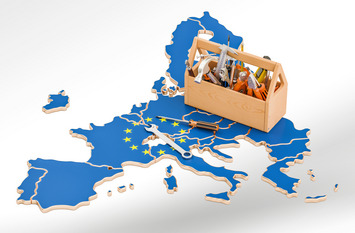
Online Event: Strategic Management of Global Interdependence
Earlier this month, we launched our new EU Strategic Toolbox Talks. These will focus on both new and existing EU instruments aimed at managing critical dependencies and strengthening the EU’s sovereignty, a central prerequisite to ensure that the EU an act in a global environment that is increasingly shaped by geopolitical tensions and systemic rivalries.
Read more
|

Levelling Up the UK after Three Decades of EU Cohesion Policy
Britain’s new Prime Minister Liz Truss has pledged to continue the government’s “levelling up” agenda, a set of ambitious policy proposals designed to transform the UK’s famously unequal economic geography. Yet three decades of EU cohesion policies suggest that while funding is important, strong political regional infrastructure is required to tackle place-based inequality.
Read more
|
|
|
|
|

Across the Mediterranean: New Perspectives for Old Neighbors
Energy supply shocks and labor shortages threaten the drivers of European prosperity. With our immediate Southern Neighborhood repleat with resources and a young population, strengthening these ties seems like an obvious solution. Yet deep regional conflicts present a long-standing obstacle to a what could be a mutually beneficial relationship with the Middle East and North Africa.
Read more
|
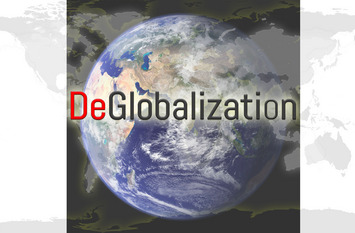
Five Responses to Prevent Deglobalization and the War in Ukraine Destroying Prosperity
A rules-based international division of labor has been the key ingredient to an increase in material prosperity in all regions of the world during the last decades. This set up came under pressure in the global financial crisis and Russia’s attack on Ukraine represents a new level of disruption. We assess the options the EU has to respond.
Read more
|
|
|
|
|
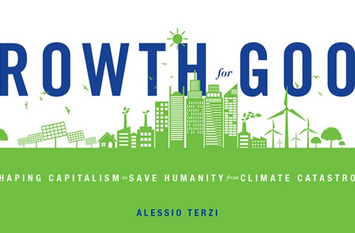
Online Event: Green Growth for Good
In cooperation with the ZOE Institute for Future-fit Economies, we have the pleasure of inviting you to a virtual seminar entitled (Green) growth for good: Is it possible and how can it be achieved? The discussion will feature Alessio Terzi, Economist at the EU Commission, and Jonathan Barth, ZOE Policy Director and expert on the economics of the green transition. Join us on Monday, 26 September at 4:00 pm CET via Zoom
Sign up here
|

Launch Event: The Future of EU Cohesion
As part of the European Week of Regions and Cities, Bertelsmann’s Economics Team will present a new study on the readiness of European regions for the twin transition and the overall implications for EU economic cohesion. Following the presentation, the results will be discussed by an expert panel. Join us in-person at the Press Club Europe Brussels or online via Zoom on October 13th at 9:30 am CET.
Sign up here
|
|
|
|
|
>
In the next edition
|
|
|
|
We will cover the Italian elections, Transatlantic trends and offer further analysis on China-Taiwan relations.
To keep abreast of our work, please keep an eye on our blog: globaleurope.eu
Or follow us on social media: http://twitter.com/GED_Tweet
|
|
|
|
|
|
|
|
|
|
|
|